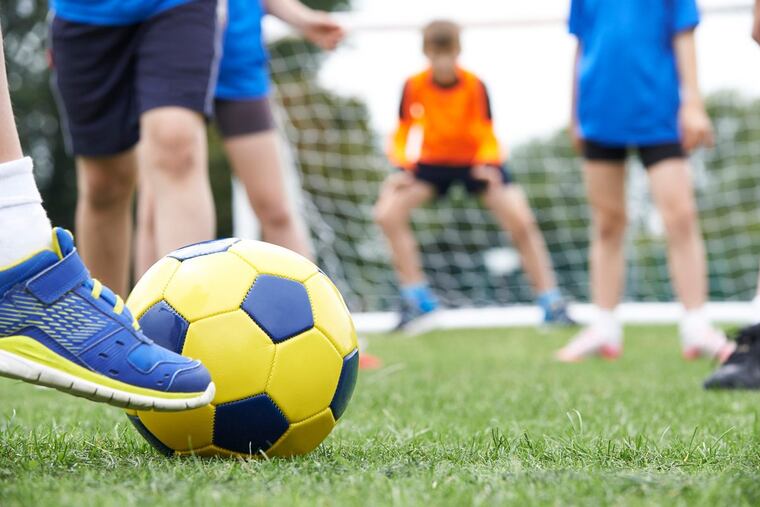Should kids play contact sports?
Parents need to seriously reconsider having their children play high contact sports given the recent findings on brain injuries found in adult athletes.

Earlier this fall, I wrote about the concerns about the spread of infectious diseases in sports as outlined in an American Academy of Pediatrics report. To be honest, I'm not too worried about this since good hygiene can usually address the issue.
However, the frequency of serious traumatic injuries especially in high school football combined with the increasingly scary reports on post-concussive brain injury — chronic traumatic encephalopathy (CTE) — in football players after they retire is changing my opinion on contact sports in children or even adults. Last week, researchers at Boston University revealed Aaron Hernandez suffered the most severe case of CTE ever discovered in a person his age, damage that would have significantly affected his decision-making, judgment, and cognition.
About a million high school boys play organized football in the United States. Another 500,000 or so play other almost equally violent sports including lacrosse, hockey, wrestling, and soccer.
I played football from August to November for eight years through middle school, high school, and college. I wasn't great, but started every game for eight years. I wonder now would my teenage self—if he knew all the problems above—decide to play football? The answer is complex. I had gotten into sports since I had some athletic skill and it helped me feel more socially accepted. I was mostly considered a nerd for doing well in school at the time.
I broke my hand in ninth grade and did not tell anyone for the whole season so I could continue to play. I got my "my bell rung" (probably mild concussions) at least five times. As long as I could tell two fingers from three fingers, I was put right back into the game. I was as mediocre at wrestling, but enjoyed it and worked hard enough to get into the state tournament my senior year.
Fast forward and I have mild chronic pain and a missing knuckle on my right hand probably from ignoring that broken hand in high school. I developed traumatic arthritis of my cervical spine and needed neck surgery in my late 30s probably because of repetitive trauma from those two sports. My leg joints are very stiff mainly because I'm 67, but probably also from thousands of collisions in my youth. Even still, I probably would make the same decision to play contact sports. I am not saying that this makes any sense, but contact sports made my high school life tolerable.
So going back to the original question: Should children play contact sports? I currently believe that full contact football is not acceptable for young people. A recent study from Yale stated that that there would be about 50,000 fewer serious injuries among male college students per year and about 600,000 fewer significant injuries among male high school students each year if they played flag football rather than full contact football. Independent of the medical pain and suffering, this would save over $20 billion dollars yearly in short term medical costs.
In addition to the costs, serious injuries such as ligament tears have a 50 percent long-term chance of chronic arthritis a decade or more later. We do not know how common serious long-term consequences of head injuries are, but in the limited available studies of CTE in professional football players, this brain damage may affect a significant number of players.
The results for sports other than football have not really been studied as well and the long-term effects on woman athletes has been hardly studied at all. A lot of pediatricians think that girls having thinner skulls are more prone to traumatic head injuries and have strongly suggested that young ladies avoid heading a soccer ball (I do not think this is purely sexism). There is also data that concussions in girls last longer.
So, I would tell many of my patients not to participate in contact sports, but I would understand if they ignored my advice for social reasons. Fifty years ago, I certainly ignored my mother when she gave me that same advice. Plus, varsity sports are a common way of getting kids in bad neighborhoods off the streets and into college. However, I would consider sports with potentially less impact such as flag football, soccer without heading allowed, track and field, tennis, and baseball. All of life has dangers, but sports leading to frequent head injury are just bad long term for our children's brains.